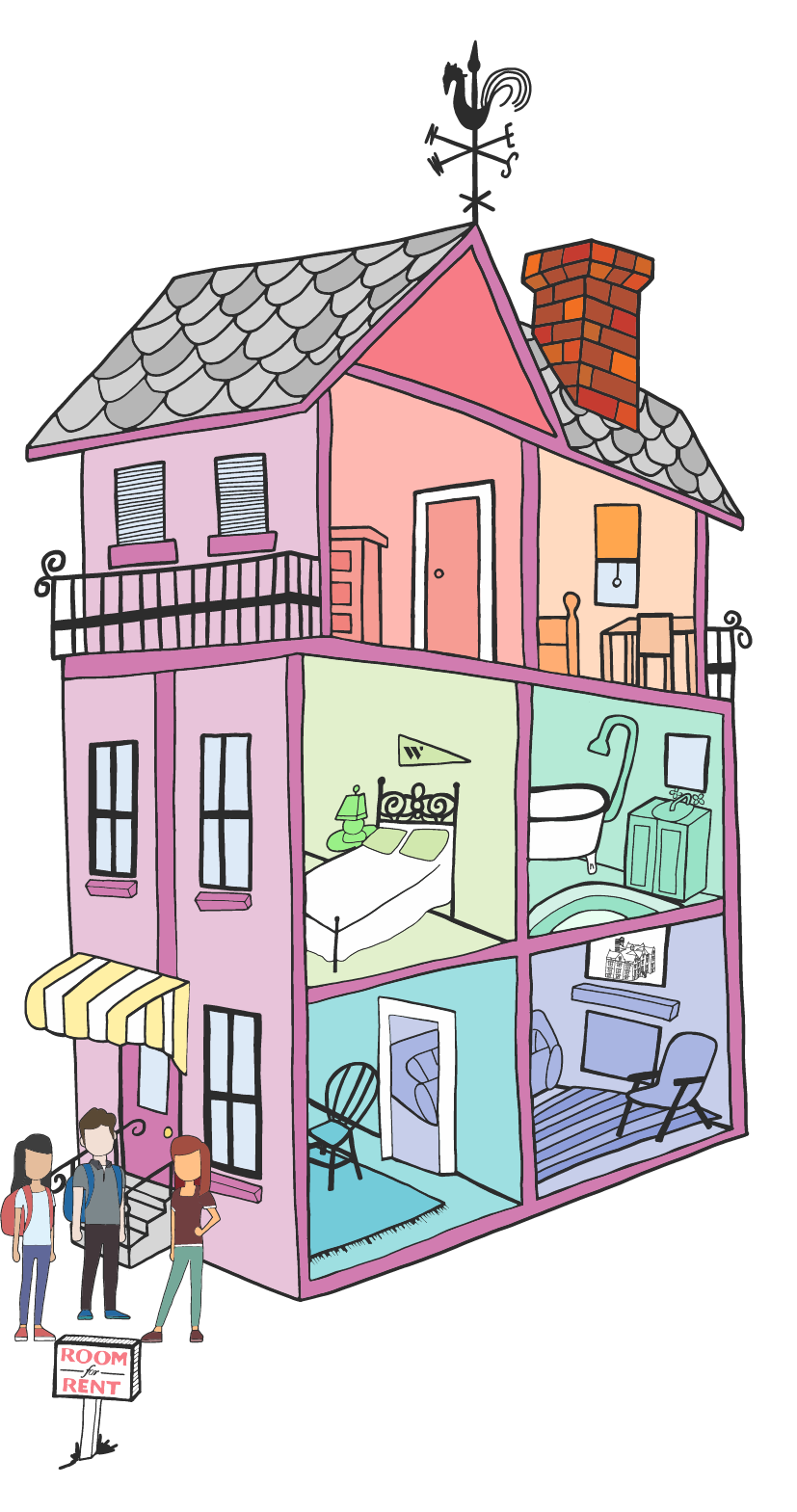
Share Your Home, Save the World

Why aren’t more people sharing their homes?
by Ned Skanchy (MBA ’12)
No door, no window, no closet, no privacy—that is the kind of “room” that $295 gets you in Sugar House. This was Ming’s* experience moving from the Westminster dorms to her first private room off campus. Her private room consisted of a sheet hung across the middle of a living room. Ming is an international student at Westminster College. She is the first of her family to attend school in the United States. She is bright, respectful, dedicated to her studies, and just needed a clean, quiet place to live near campus that fit her budget. Ming is not alone: college students across America struggle to find affordable housing. Some students are forced to make long commutes, sleep in their cars, or drop out of school altogether because of their inability to afford housing near campus.
Alice* lives less than a mile from Westminster’s campus. Thirty years ago, a widowed Alice was seeing her youngest of four kids off to college. She realized that she had plenty of unused space in her five-bedroom home and decided to share it with guests from around the world. Since then, she has hosted doctors from Mongolia, a student from Thailand, a Mandarin language professor from China, and a granddaughter and grandson. Her guests have stayed anywhere from months to years, and one of her guests was able to save enough money to make a down payment on a condominium. Alice enjoys the friendship she develops with her guests. While she may be somewhat unusual in her willingness to share her home, Alice is not unique in the fact that she wants to age where she raised her children but doesn’t need all the space her family once required.
Home sharing has environmental, social, financial, and emotional benefits. It is a solution to help seniors age in place, reduce loneliness, provide extra income, and create new purpose for someone. It is a solution to provide safe and stable affordable housing while making multigenerational connections and allowing homeowners the chance to serve. But how do we connect Ming and others who need a place with people like Alice? In the last few years, services such as Airbnb and VRBO popularly began facilitating home sharing. However, these platforms turn extra room into a hotel by focusing on short-term rentals with high turnover. The experience is transaction-based rather than relationship-based. The type of home sharing that can make a real impact on the loneliness epidemic and the housing-affordability crisis functions more like a dating platform where people can find someone who is the right “fit.” Guests stay for months if not years and have the opportunity to form real relationships with their hosts. Platforms that facilitate this type of home sharing will provide screening and background checks, ongoing support, and payment processing—making the experience positive for both the host and guest.
The power of home sharing first struck me in the fall of 2018 while working with a group of Westminster students interested in using entrepreneurship to solve social problems. For four weeks we looked hard at the challenges of creating affordable housing and the current solutions being proposed. The “aha” moment came when we realized there were a lot of empty bedrooms in our existing housing stock. I have spent the past year talking to homeowners and renters to find out how best to facilitate matching for those interested in home sharing. The result of these conversations is keenhomeshare.com.
According to data from the 2010 US census, there are an estimated 73,000 empty bedrooms in Salt Lake County. Between 2000 and 2017, Salt Lake County added 26,880 apartment units, an average of 1,581 per year. If just two percent of the empty bedrooms in Salt Lake County were shared with those needing housing, it could add a year’s worth of housing inventory to the market without any additional construction or the associated environmental effects.
The challenges our communities face can seem big, overwhelming, and even scary. But there are simple solutions—things that you and I can do—to make a difference. There is something incredibly powerful about individuals deciding to create change and solve problems on their own. Whether as a guest or a host, by participating in home sharing you are saving the world.
Ned presented on the topic of shared housing at Westminster Thinks Big in November 2019.
*Names are examples of real people and not specific alums.
About the Westminster Review
The Westminster Review is Westminster University’s bi-annual alumni magazine that is distributed to alumni and community members. Each issue aims to keep alumni updated on campus current events and highlights the accomplishments of current students, professors, and Westminster alum.
GET THE REVIEW IN PRINT STAY IN TOUCH SUBMIT YOUR STORY IDEA READ MORE WESTMINSTER STORIES